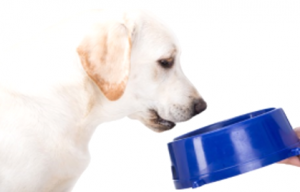re • spon • si • bil • i • ty noun
the state or fact of being responsible, answerable for something within one's power, control, or management
the state or fact of being responsible, answerable for something within one's power, control, or management

In society today, we are bombarded with messages that say, "if it doesn't make you feel good, then don't do it!" The problem is that sometimes being responsible isn't fun and doesn't feel good. But even so, we do have an ethical obligation to be responsible and raise responsible children.
As a young mother, I worked hard to instill a strong sense of responsibility in my two little children. As my children were growing up, we always had pets at our house. Early on, my children were given the task of feeding our dogs and filling their water bowl.
Now, were there times that water was spilled on the floor? You bet! But mistakes are lessons to be learned, and their prevention should not keep us for helping our children learn to have responsibilities. Besides, the dogs were always happy to tidy up the scattered food spilled on the floor.
There were many times that I had to look past imperfections and let my kiddos complete the task within their skill ability. The result was that they were so proud of themselves when our grateful dogs licked their faces after they received their food in the evening. Young children are capable of being responsible for simple tasks, like throwing away trash or putting plastic plates in the dishwasher. You can always find ways to adapt a chore in order to make this easier. For example, I made sure the dog food was easy to reach and put a stool by the sink so my children could reach the faucet to fill up the water bowls.
Responsibility doesn't always have to be a chore and something to dread. With a little support, being responsible can be fun and help a child feel good about their
contributions and accomplishments! Be sure to praise them when they are responsible and complete a task. It will pay off; as they get older, they will associate being responsible with your support and praise.
As a young mother, I worked hard to instill a strong sense of responsibility in my two little children. As my children were growing up, we always had pets at our house. Early on, my children were given the task of feeding our dogs and filling their water bowl.
Now, were there times that water was spilled on the floor? You bet! But mistakes are lessons to be learned, and their prevention should not keep us for helping our children learn to have responsibilities. Besides, the dogs were always happy to tidy up the scattered food spilled on the floor.
There were many times that I had to look past imperfections and let my kiddos complete the task within their skill ability. The result was that they were so proud of themselves when our grateful dogs licked their faces after they received their food in the evening. Young children are capable of being responsible for simple tasks, like throwing away trash or putting plastic plates in the dishwasher. You can always find ways to adapt a chore in order to make this easier. For example, I made sure the dog food was easy to reach and put a stool by the sink so my children could reach the faucet to fill up the water bowls.
Responsibility doesn't always have to be a chore and something to dread. With a little support, being responsible can be fun and help a child feel good about their
contributions and accomplishments! Be sure to praise them when they are responsible and complete a task. It will pay off; as they get older, they will associate being responsible with your support and praise.

Parents may have to give up having things done exactly as they would like then them to be done and on their exact timetable in order for a child to move from obedience to responsibility. But allowing a child to 'do it his way' will encourage a feeling of pride in accomplishment and foster a sense of responsibility.



